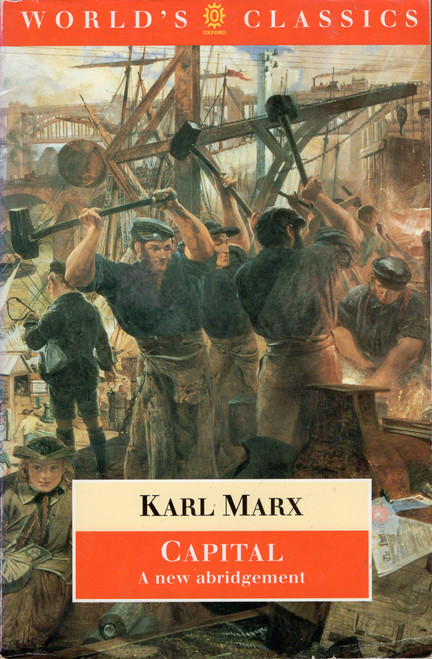'The ultimate aim of this work is to lay bare the economic law of motion of modern society.'
A classic of early modernism, Capital combines vivid historical detail with economic analysis to produce a bitter denunciation of mid-Victorian capitalist society. It has proved to be the most influential work in twentieth-century social science; Marx did for social science what Darwin had done for biology.
Millions of readers this century have treated Capital as a sacred text, subjecting it to as many different interpretations as the bible itself. No mere work of dry economics, Marx's great work depicts the unfolding of industrial capitalism as a tragic drama--with a message which has lost none of its relevance today.
This is the only abridged edition to take into account the whole of Capital. It offers virtually all of Volume 1, which Marx himself published in 1867; excerpts from a new translation of 'The Result of the Immediate Process Production', and a selection of key chapters from Volume 3, which Engels
published in 1895.
Edited with an Introduction by David McLellan
About the Author
Karl Marx (1818-1883) was a German philosopher, political economist, historian, political theorist, sociologist, communist, and revolutionary, whose ideas played a significant role in the development of modern communism. Marx summarized his approach in the first line of chapter one of The Communist Manifesto, published in 1848: "The history of all hitherto existing society is the history of class struggles." Marx argued that capitalism, like previous socioeconomic systems, would inevitably produce internal tensions which would lead to its destruction. Just as capitalism replaced feudalism, he believed socialism would, in its turn, replace capitalism, and lead to a stateless, classless society called pure communism. This would emerge after a transitional period called the "dictatorship of the proletariat": a period sometimes referred to as the "workers state" or "workers' democracy". In section one of The Communist Manifesto Marx describes feudalism, capitalism, and the role internal social contradictions play in the historical process: We see then: the means of production and of exchange, on whose foundation the bourgeoisie built itself up, were generated in feudal society. At a certain stage in the development of these means of production and of exchange, the conditions under which feudal society produced and exchanged...the feudal relations of property became no longer compatible with the already developed productive forces; they became so many fetters. They had to be burst asunder; they were burst asunder. Into their place stepped free competition, accompanied by a social and political constitution adapted in it, and the economic and political sway of the bourgeois class. A similar movement is going on before our own eyes.... The productive forces at the disposal of society no longer tend to further the development of the conditions of bourgeois property; on the contrary, they have become too powerful for these conditions, by which they are fettered, and so soon as they overcome these fetters, they bring order into the whole of bourgeois society, endanger the existence of bourgeois property.Marx argued for a systemic understanding of socio-economic change.
David McLellan is Professor of Political Theory at Goldsmiths College, London, UK. He has written over 20 books on Marx and Marxism, many of which have been translated into foreign languages. His most recent publications are Simone Weil: Utopian Pessimist and Unto Caesar: The Political Relevance of Christianity.







